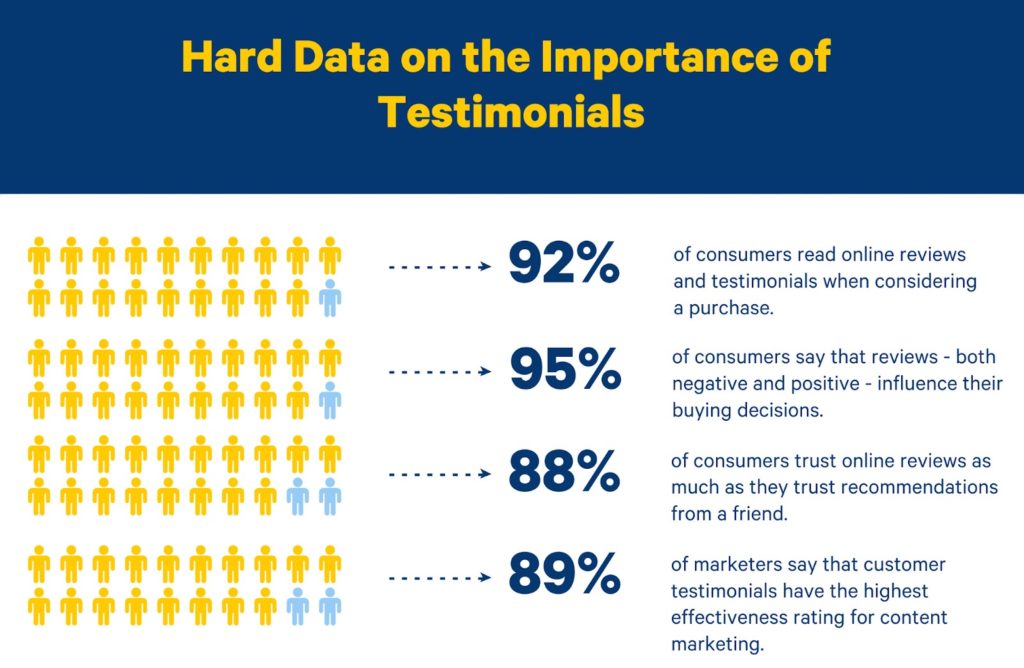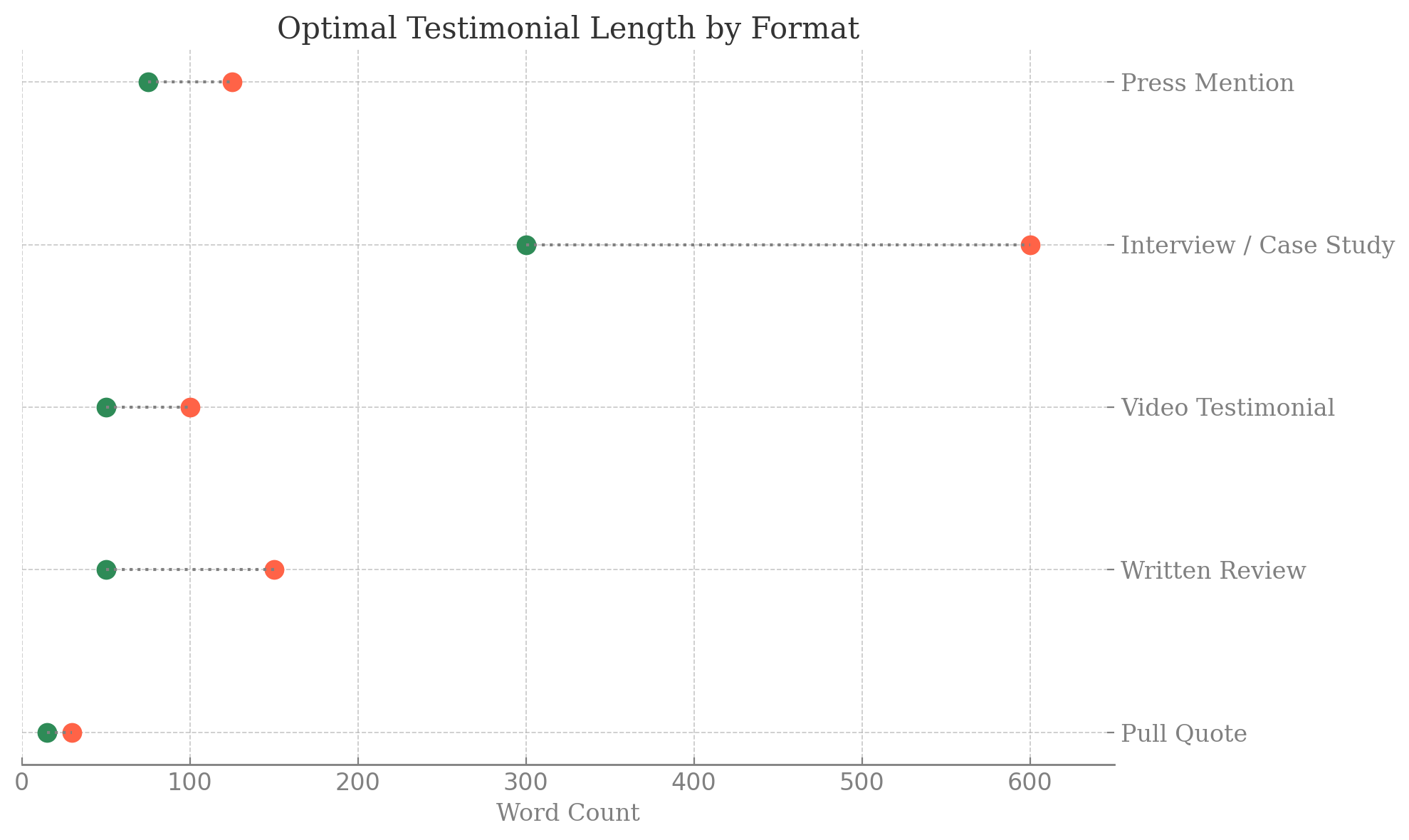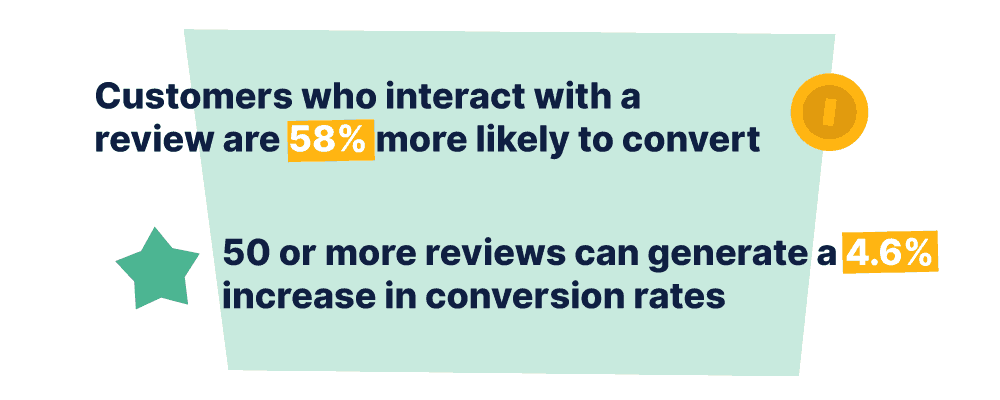"Testimonials are almost as important as the product itself."
Getting glowing reviews and positive feedback from satisfied customers is like gold for any business. Customer testimonials are a powerful marketing tool that can boost conversions, increase sales, and establish credibility. But how do you go about collecting inspiring quotes and stories from happy customers? And what's the best way to leverage them in your marketing? In this comprehensive guide, we’ll cover proven strategies and tips for gathering customer endorsements and effectively promoting them.

Why Customer Quotes Are Valuable
Before diving into the how-to, it’s important to understand why customer testimonials matter:
- Build Trust and Credibility - Quotes from real customers help establish trust and credibility for your brand. They serve as social proof that your product or service delivers on its promises.
- Overcome Skepticism - Many prospects are skeptical of marketing claims. Customer quotes help overcome this skepticism by showing real experiences from actual users.
- Increase Conversions - Testimonials can boost conversions by reassuring visitors that others have purchased and been satisfied. They help visitors imagine themselves having a positive experience.
- Spread Word-of-Mouth - Happy customers are often eager to share their positive experiences. Their quotes can catalyze powerful word-of-mouth marketing for your business.
- Improve SEO - Relevant quotes integrated onto key pages can improve SEO by signaling to search engines that your pages satisfy user intent.
Clearly, customer testimonials can provide tremendous value. Now let’s look at proven ways to collect them systematically.

How to Gather Customer Quotes
Gathering great customer endorsements takes effort. You can’t just sit around expecting testimonials to fall in your lap. Here are proactive tactics for collecting inspiring reviews and quotes:
Survey Customers
- Send follow-up customer satisfaction surveys after purchases and interactions
- Ask specific questions to uncover powerful quotes like:
- What was the biggest benefit you got from our [product/service]?
- How has our [product/service] improved your [life/business]?
- What do you enjoy most about our [product/service]?
- What would you say to others considering our [product/service]?
- Offer incentives for thoughtful responses
Monitor Social Media
- Monitor social media for positive mentions of your brand by customers
- Reply asking if you can share their feedback on your website or in promotions
Prompt for Reviews
- Email customers asking for reviews on platforms like Yelp after positive interactions
- Provide quick review links to make it easy
Ask Directly
- Personally reach out to loyal, longtime customers requesting testimonials
- Explain how their words will help other potential customers
- Offer to interview them and draft the testimonial for approval
Catch Them in the Moment
- Identify moments when customers are likely to be most enthusiastic - right after purchase, after service, upon unboxing your product, etc.
- Intercept customers during these high-emotion moments to document the excitement
| Method | Pros | Cons |
|---|---|---|
| Surveys | Uncovers detailed feedback. Can target specific questions. | Customers may ignore surveys. Takes more effort than reviews. |
| Social Monitoring | Authentic, candid feedback. Shared publicly. | Not necessarily representative. Can't guide feedback. |
| Review Prompts | Easy for customers. Scales well. | Reviews are often shorter. Less detailed. |
| Direct Outreach | High-quality quotes. Can target best customers. | Very manual. Customers may be unresponsive. |
| In the Moment | Captures excitement. High response rate. | Logistically challenging. Narrow window. |
Use a mix of tactics to gather diverse customer perspectives. Prioritize proactive methods to reliably build your portfolio of customer endorsements.

Best Practices for Collecting Testimonials
Follow these best practices when seeking customer quotes:
Get Permission First - Always get the customer's consent before publicly sharing any feedback they provide.
Offer Value - Provide incentives like discounts, gifts, or early access to new products in exchange for endorsement.
Give Examples - Share examples of the types of quotes that would be most helpful.
Be Specific - Ask targeted questions focused on your most compelling selling points.
Interview Top Customers - Personally interview longtime, high-value customers to capture meaningful stories.
Capture Context - Gather details like what problem they faced, how you solved it, and what results they achieved.
Keep it Short - Quote length should be 1-3 sentences. Anything longer gets ignored.
Let them Revise - Offer to let customers review and revise testimonials before publishing.
Rotate Content - Continuously gather new quotes over time to keep content fresh.
Say Thank You - Show gratitude and highlight testimonials you receive in thank you emails or notes.
By being proactive, providing value, and capturing specific details, you can systematically build an amazing collection of customer endorsements.

How to Promote Testimonials for Maximum Impact
Now that you've gathered stellar customer quotes, let's explore proven ways to leverage them for marketing:
Website Integration
- Showcase testimonials prominently throughout your website:
- Homepage hero sections
- Product and pricing pages
- Checkout payment pages
- Footer
- Use pull quotes to highlight short endorsements
- Integrate full-length quotes in copy or testimonial blocks
- Add photos, names, companies to build credibility
Email Marketing
- Include relevant quotes in drip campaigns and promotional emails
- Put testimonials in email signatures with attribution
- Send “Customer Spotlight” emails fully focused on a single raving fan
Advertising
- Incorporate short customer quotes in PPC ads, social ads, streaming ads, etc.
- Create video or image ads fully around a customer endorsement
- Use customer logos and attributed quotes in ads
Sales Enablement
- Feature rotating testimonials in sales presentations and collateral
- Create a "Reviews" section in sales packets showcasing customer wins
Social Media
- Post great customer quotes natively on social channels
- Turn customer quotes into image assets for posts
- Create a video testimonial compilation for YouTube and LinkedIn
Promotional Merchandise
- Print powerful testimonials on t-shirts, bumper stickers, and swag
- Highlight 5-star review scores on packaging
| Channel | Best Practices |
|---|---|
| Website | Prominently showcase throughout buyer's journey |
| Include in drip campaigns and signatures | |
| Advertising | Short quotes in ads build credibility |
| Sales | Rotate quotes in presentations and collateral |
| Social Media | Share image and video testimonials |
| Merchandise | Print quotes on swag and packaging |
The key is pairing the right testimonials with the right channels and touchpoints throughout the customer lifecycle.
Mistakes to Avoid
While customer endorsements can be incredibly powerful, there are some common mistakes that can diminish their impact:
Outdated Quotes - Avoid stale, old testimonials. Always be adding new ones.
Anonymous Quotes - Attribution builds credibility. Anonymous quotes are easy to doubt.
Fake Quotes - Never make up fake testimonials. Only highlight real customer feedback.
Irrelevant Quotes - Make sure quotes align with what you want visitors to do next.
Too Salesy - Don't try to write testimonials that sound like ads. Authenticity matters.
Overuse - Don't overdo it. A few, meaningful testimonials beat a dozen generic ones.
Hidden Away - Don't bury testimonials. Feature them prominently where buyers will see them.
Lack of Diversity - Collect diverse perspectives - small customers, large customers, various use cases, different demographics, etc.
Lack of Value - Provide incentives for quality testimonials whenever possible. Don't expect customers to give you endorsements for free.
No Optimization - Actively A/B test testimonial content, placement, etc. to maximize impact.
By avoiding these mistakes and systematically collecting, creating, and promoting authentic customer quotes, you can reap substantial benefits for your business. Customer testimonials are highly persuasive and a foundational marketing asset - so start gathering inspiring reviews from your raving fans today!
FAQ
1. When is the best time to ask customers for a testimonial?
The best time is typically right after a positive interaction or purchase when satisfaction is highest. Send a testimonial request email within a week of a purchase or service interaction before the emotions fade. Offering an incentive can also boost response rates.
2. How do you motivate customers to give a review?
Offer an incentive like a coupon, gift card, or free product in exchange for leaving a thoughtful review. Make it super easy by providing a direct link. Highlight how their review will help other customers. Show authenticity by featuring their review publicly.
3. What makes a powerful testimonial?
A powerful testimonial focuses on specifics like measurable outcomes achieved. It tells a story and highlights emotions like relief or excitement. It feels authentic using real customer language and details. It conveys the full journey from problem to solution to results.
4. How long should testimonials be?
- Pull quotes: 15-30 words
- Written reviews: 50-150 words
- Video: 50-100 word script
- Case study: 300-600 words
- Try to keep testimonials concise and scannable for readers.
5. Where should you feature customer testimonials on your website?
Prominently showcase testimonials on high-value pages like:
- Homepage
- Product pages
- Pricing / comparison pages
- Shopping cart and checkout pages
- FAQ / support pages to address concerns
- Website header and footer
6. Can you get in legal trouble for fake testimonials?
Yes, publishing fabricated testimonials or misrepresenting a customer quote is false advertising and strictly prohibited by the FTC. Only publish real quotes from actual customers who have given their consent.
7. How can you use testimonials in advertising?
Short attributed quotes work well in:
- PPC text ads
- Social media ads
- Retargeting ads
- Video ads centered fully on a customer story
Testimonials lend credibility and overcome skepticism.
8. Should testimonials include photos or videos?
Absolutely. Adding real customer photos, videos, company logos builds much greater credibility. Visitors want to see real people and put a face to the testimonial.
9. How important is collecting new testimonials regularly?
Very important. You don't want your testimonials to get stale and dated. Continuously collect new examples over time and rotate them into your content.
10. What incentives work best for getting testimonial content?
Discounts, coupons, sweepstakes entries, free products, and public recognition of their contribution work very well. Offer whatever would delight your customers based on your business.






